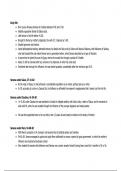Summary
Summary Seneca - Love and Relationships H408/32 - A* grade
- Institution
- OCR
Everything you need to know about Seneca for Love and Relationships Classics A-level Got me my A* and includes notes on every theme and topic + essay answers
[Show more]



